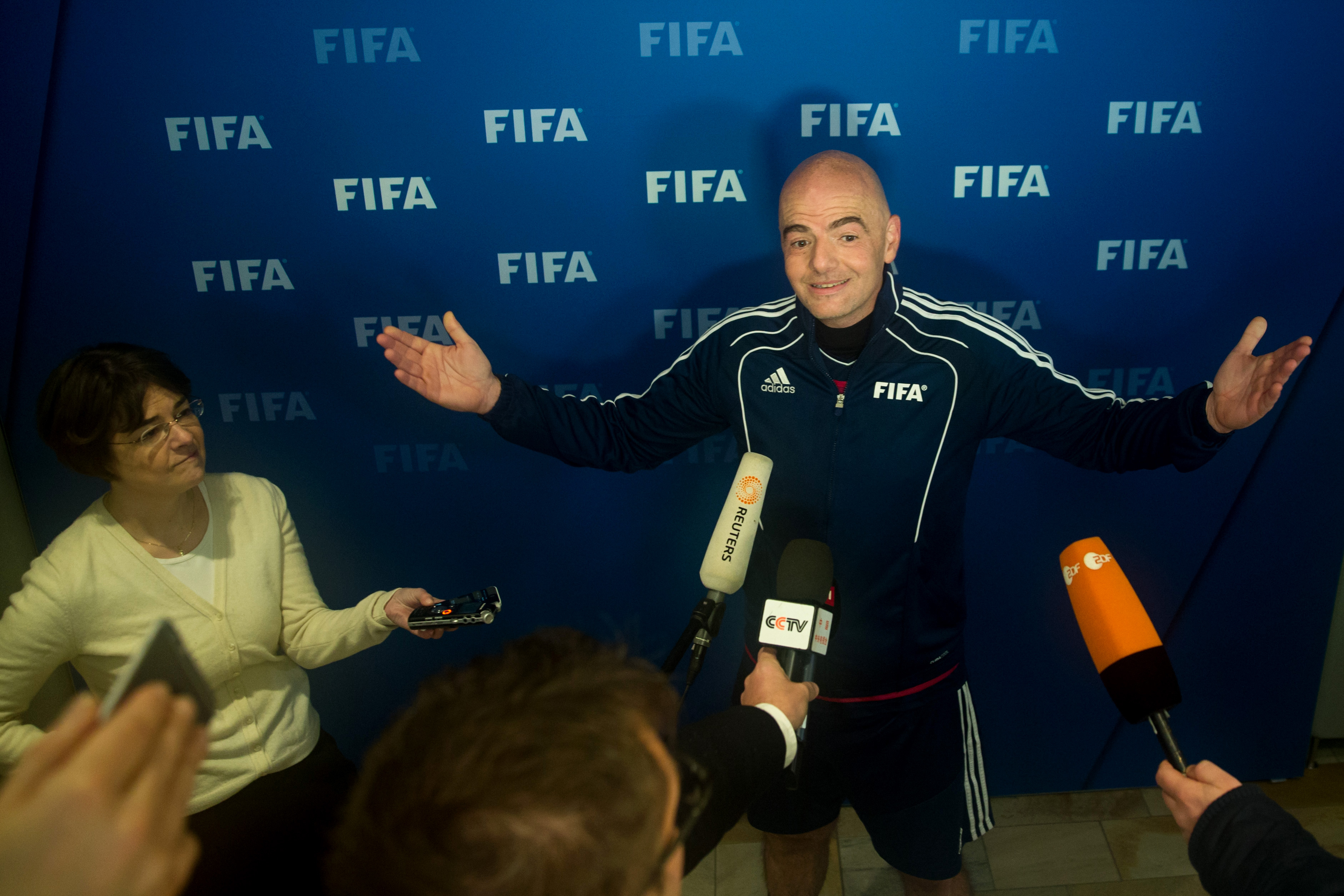As the dust was beginning to settle on the scandal that has rocked football’s foremost governing body, FIFA, the organisation has once again been thrown into crisis.
This time around, there are questions to be answered by its ethics committee. Some of its members have been linked to the law firm at the heart of the biggest revelation of offshore tax avoidance schemes, the so-called ‘Panama Papers’.
This new episode only serves to add more drama to an already stellar soap opera involving the governing body.
It goes without saying that such controversy is hardly what the new FIFA president, Gianni Infantino would have hoped for. And this has undoubtedly brrought an abrupt end to his honeymoon period as the organisation’s ninth president.

Having taken office in late February, one of his first mandates would surely have been to restore public confidence in an organisation still hurting from damning revelations of bribery and corruption within its ranks. However, the million-dollar question now is this: how does an organisation whose ethics committee is being implicated in wrong doings, convince the outside world it has what it takes to clean up its act?
Without doubt, football is a big, big business; where sponsorship and media deals run into hundreds of millions of dollars – owing to the sport’s global appeal. But the sport is walking a tightrope.
It runs the risk of further losing the trust and loyalty of millions of fan.
It can ill afford further disclosures of misdemeanours, and shady dealings by its members. Otherwise, it runs the risk of further losing the trust and loyalty of millions of fans, who are the heart and soul of the game – who fuel its profitability globally through joy, tears, triumphs and defeats.
A cliché perhaps but absolute power corrupts absolutely. And this has been evident at all levels of football administration. Sepp Blatter’s 17-year reign in Zurich ended unceremoniously. Meanwhile in Africa, Isaa Hayatou is still the president of CAF, continuing his tight grip on the organisation since he assumed office in 1988. Is it simply a case that in almost 30 years, no other candidate with new ideas can be found on the African continent for this position? Or has Hayatou discovered the secret to agelessness? In the case of the latter, recent footage of the top man falling asleep during a FIFA congress in Zurich might suggest otherwise.

On a serious note, radical change is required in CAF to ensure that the governance of the sport on the continent is given some new lease of life. Last year, during its congress in Cairo, there was a unanimous decision passed to allow CAF officials over the age of 70 to continue serving within the organisation – undoubtedly a change made to favour Mr Hayatou. This in no way suggests that the organisation’s members themselves are yearning for change.
In the meantime, FIFA has taken key steps towards reform. Documents available from the governing body reveal that a cap has now been set on the number of terms a candidate can run for president. Gone is the age of the lifetime president. In comes a maximum tenure of three terms of four years.
Although, this is a welcome development, the approved tenure ought to have been limited to two terms, with the option for a third only triggered in cases of exceptional performance by the president.
Although the world governing body has not always covered itself in glory, it must be stated categorically that FIFA has done a lot to improve the plight of the game on the African continent. A quick glance at its development globe page which outlines projects the organisation has undertaken, shows that Africa has benefited from a total of 1,077 projects since 2012 split across technical support programmes, development projects and performance activities.
Administrators will have a huge role to play.
Nevertheless, a cynic might say that these projects were commissioned to ensure that Blatter kept control over the African delegates – all 55 of them, representing a significant army of votes during any election.
As FIFA attempts to clean up its image, African football federations must do same. By instilling more strict accountability measures to ensure that the funds received from the governing body are utilised effectively at all levels.
This may sound like a no brainer, but in order for the continent to ever realise its aspirations of one day having one of its nations lift the World Cup trophy, its administrators will have a huge role to play in this, and they can start by resisting the temptation to misappropriate scarce resources.
